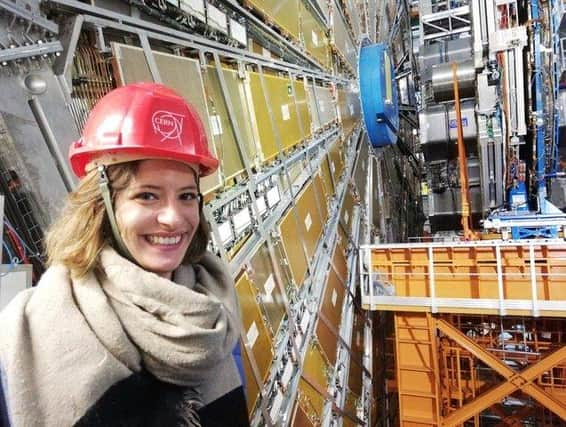Sussex University scientist to present dark matter research in Parliament to help ‘understand the universe’


Daniela Koeck will present her work to politicians and a panel of expert judges on Monday (March 9) as part of the STEM for BRITAIN competition.
Her research focuses on dark matter - hard to detect particles that are thought to make up around 80 per cent of matter in the universe.
Advertisement
Hide AdAdvertisement
Hide AdThe research takes place at the ATLAS experiment in Geneva, Switzerland, which is based at the Large Hadron Collider- the world’s largest machine used to replicate conditions following the Big Bang.
Daniela will be judged against dozens of other scientists in the only national competition of its kind.
Her presentation will explain how her work helps to identify dark matter among ATLAS data.
“I’m looking forward to talking to parliamentarians about my part in the search for Supersymmetry, which might hold the answer to the question of ‘What is Dark Matter?’,” Daniela said.
Advertisement
Hide AdAdvertisement
Hide Ad“I’ll be explaining how my work, and that of other colleagues at the University of Sussex, is helping to push forward our understanding of the universe.”
The annual competition is run by the House of Commons Parliamentary Scientific Committee, the Institute of Physics, Royal Society of Chemistry, Royal Academy of Engineering, Royal Society of Biology, Physiological Society, Council for the Mathematical Sciences, and the Nutrition Society.
Industry experts judge the entries with winners bagging £2,000 and runners up winning cash prizes.
Stephen Metcalfe MP, chairman of the Parliamentary and Scientific Committee, said: “This annual competition is an important date in the parliamentary calendar because it gives MPs an opportunity to speak to a wide range of the country’s best young researchers.
“These early career engineers, mathematicians and scientists are the architects of our future and STEM for BRITAIN is politicians’ best opportunity to meet them and understand their work.”